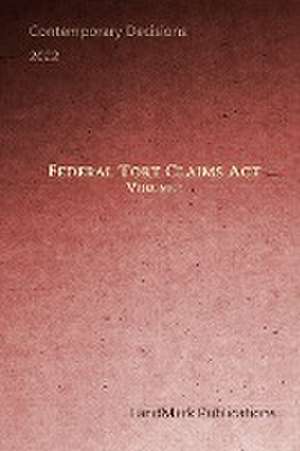Federal Tort Claims Act: Litigator Series
Autor Landmark Publicationsen Limba Engleză Paperback – 10 mai 2022
Preț: 424.97 lei
Nou
Puncte Express: 637
Preț estimativ în valută:
81.32€ • 85.29$ • 67.70£
81.32€ • 85.29$ • 67.70£
Carte tipărită la comandă
Livrare economică 02-16 aprilie
Preluare comenzi: 021 569.72.76
Specificații
ISBN-13: 9781087942988
ISBN-10: 1087942985
Pagini: 542
Dimensiuni: 152 x 229 x 29 mm
Greutate: 0.72 kg
Ediția:Contemporary Decisions
Editura: LandMark Publications
Colecția Litigator Series
Seria Litigator Series
ISBN-10: 1087942985
Pagini: 542
Dimensiuni: 152 x 229 x 29 mm
Greutate: 0.72 kg
Ediția:Contemporary Decisions
Editura: LandMark Publications
Colecția Litigator Series
Seria Litigator Series
